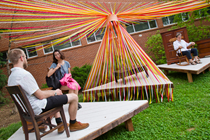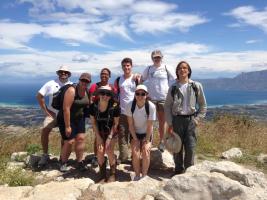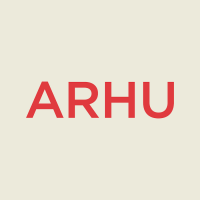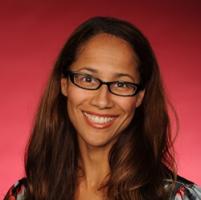Below is a list of enrichment opportunities for ARHU faculty, staff and students for spring 2016. We hope you will be able to join us for some of these exciting events. Please consider incorporating some of these events into your syllabi and pass these opportunities along to your students. A copy of these events is available for download here. If you have something you would like to be included in this listing, please email arhusynergy@umd.edu.
Do Good Challenge: Course Support Micro-Grant Funds Available
Request for Proposals Deadline: Dec. 21, 2015
The Do Good Challenge is an eight-week social innovation challenge that inspires students to apply their creativity, skills, and passion to address pressing social challenges on campus and around the world. During the challenge, students team up to analyze a pressing social issue, take action through volunteering, fundraisers, advocacy, or start their own social enterprises. This year they are launching a new initiative which provides funds ($500 to $2000) and resources to faculty who are interested in incorporating the Do Good Challenge into spring 2016 courses. Contact Katlin Meissinger, katmeiss@umd.edu for more info.
Artist Partner Program
NextLOOK: Clown Cabaret
Fri. Jan. 22, 2016, 7:00pm; Joe’s Movement Emporium
Pay what you want, no tickets required
Clown Cabaret, who will be in residency at Joe’s Movement Emporium from January 18–22, 2016, works in an evolving art form that celebrates a universal sense of fun. Through performance, workshops and audience interaction, Clown Cabaret keeps the tradition alive as they develop their newest work.
Artist Partner Program
ODC DANCE: “Stay In One Place” Workshop
Thurs. Jan.28, 2016, 3:30pm; The Clarice, Rever Rehearsal Studio
Free, Registration Recommended
Workshop that illuminates the natural environment through sculpture and movement.
DeVos Institute of Arts Management Internships
Applications accepted on a rolling basis through January 29, 2016
The DeVos Institute of Arts Management is currently accepting applications for Spring 2016 Internships. Students gain valuable experience in event management, program management, and industry research by supporting the Institute’s domestic and international training programs. Interested students may send a resume and cover letter to Syrah Gunning at sgunning@umd.edu.
Recital featuring Andrés Cárdenes, violin; Rita Sloan, piano
Tuesday, February 2, 2016, 8:00pm; Gildenhorn Recital Hall
Free, no tickets required
Grammy-nominated artist Andrés Cárdenes parlays his myriad talents into one of classical music’s most versatile careers. An intensely passionate and personally charismatic artist, Cuban-born Cárdenes has garnered international acclaim from critics and audiences alike for his compelling performances as a violinist, conductor, violist, chamber musician, concertmaster, and recording artist.
Artist Partner Program, UMD School of Music
Ursula Oppens: Piano Master Class
Wed. Feb. 3, 2016, 7:00pm; The Clarice, Gildenhorn Recital Hall
Free, No tickets required
Ursula Oppens will coach students from piano studios in the UMD School of Music.
Ursula Oppens’s Artist-Partner Recital
Thursday, February 4, 8:00pm; Gildenhorn Recital Hall
$25 Public / $20 Next Level / $10 Student/Youth
Praised by the San Francisco Chronicle for her "steely fingers and tender, inviting sense of lyricism infused… with athleticism and grace," Ursula Oppens has long been recognized as the leading champion of contemporary American piano music.
She is a four-time Grammy nominee who has performed with virtually all of the world’s major orchestras, including the New York Philharmonic, Boston Symphony Orchestra and the London Philharmonic. Prolific as a chamber musician as well as a soloist, Oppens has collaborated with the JACK, Juilliard and Pacifica Quartets.
NextLOOK: Clown Cabaret
Friday, February 5, 2016, 7:00pm; Joe's Movement Emporium
Pay what you want, no tickets required
Clown is an evolving art form which celebrates a universal sense of fun. Through performance, workshops, and audience interaction, Clown Cabaret keeps the tradition alive with laughter. During the company’s NextLOOK residency, they will continue developing their newest work. In The Heist, a trio of menacing gangsters conspires to execute the Greatest Robbery of the 21st Century: a piggy bank. A film noir motif carries the story without dialogue, making the show accessible to audiences regardless of language or age. The Heist is a robust physical comedy, with nods to both high and low art ranging from French Surrealism to Bugs Bunny.
Artist Partner Program
Deke Sharon Master Classes
Wed. Feb. 10, 2016, 5:00pm; The Clarice, Dekelboum Concert Hall
Thurs. Feb. 11, 2016, 7:00pm; The Clarice, Dekelboum Concert Hall
Free, Registration Recommended
Two public master classes taught by Deke Sharon, the father of contemporary a cappella.
PANEL: Careers in Writing, Publishing & Editing
Mon. Feb. 15, 2016, 5:00-6:00pm; University Career Center, 3100 Hornbake Library, South Wing
Free, Registration Required
Interested in an internship or career using writing or editing skills? Learn more and network with panelists in a variety of fields that value strong written communication skills. Panelists will be named closer to the date. Open to all undergraduate and graduate students, as well as alumni. Please RSVP here http://go.umd.edu/pnlwriting or email Kate Juhl at kjuhl@umd.edu.
Artist Partner Program
Vocalosity: The Aca-Perfect Concert Experience
Fri. Feb. 19, 2016, 8:00pm; The Clarice, Dekelboum Concert Hall
$25 Public / $20 Next Level / $10 Student/Youth
From the movies to television, a cappella is soaring in popularity. Vocalosity captures this excitement live onstage at The Clarice. Deke Sharon, producer for Pitch Perfect and NBC’s “The Sing-Off,” gathers the world’s best singers for an ‘Aca-Perfect’ musical experience. For added fun, UMD a cappella groups will audition to be an opening act for this special evening.
Artist Partner Program
InnovatorTalk: Art and Community Development
Sat. Feb. 20. 2016, 1:00pm; Brentwood Arts Exchange
Free, Registration Recommended
City Blossoms, a non-profit dedicated to kid-driven, community-engaging, creative green spaces, was founded by UMD alum Lola Bloom. Specializing in an art-based, hands-on approach, Bloom will give an overview of the group’s evolution, and lead participants through activities that demonstrate her unique approach to learning.
UMD School of Theatre, Dance, and Performance Studies
BALTIMORE: Big Ten New Play Initiative
Fri. Feb. 26, 2016, 7:30pm; The Clarice, Kay Theatre
Sat. Feb. 27, 2016, 7:30pm; The Clarice, Kay Theatre
Sun. Feb. 28, 2016, 2:00pm; The Clarice, Kay Theatre
Wed. Mar. 2, 2016, 7:30pm; The Clarice, Kay Theatre
Thurs. Mar. 3, 2016, 7:30pm; The Clarice, Kay Theatre
Fri. Mar. 4, 2016, 7:30pm; The Clarice, Kay Theatre
Sat. Mar. 5, 2016, 2:00pm; The Clarice, Kay Theatre
Sat. Mar. 5, 2016, 7:30pm; The Clarice, Kay Theatre
$25 Public / $20 Next Level / $10 Student/Youth
Baltimore by Kirsten Greenidge is a contemporary story about the loss of innocence and the coming of age of a student forced to encounter the social ramifications of difference and her own cultural relevance.
UMD School of Music: UMD Symphony Orchestra
Alternative Energy
Fri. Feb. 26, 2016, 8:00pm, The Clarice, Dekelboum Concert Hall
$25 Public / $20 Next Level / $10 Student/Youth
New violin faculty artist Irina Muresanu and viola faculty artist Katherine Murdock are soloists in Mozart’s brilliant double concerto. With hip-hop and techno beats, folksy fiddling and junkyard percussion, Mason Bates’ Alternative Energy is a time-travelling montage that conveys the rise and fall of our industrialized world.
Professional Use of Social Media Workshop
Mon. Feb. 29, 2015, 4:00-5:00pm; University Career Center, 3100 Hornbake Library, South Wing)
Free, Registration Required
Did you know that many internships and entry-level jobs look for candidates with professional-level knowledge of social media? Pick up valuable skills for your resume during this workshop, which will provide background on how to run social media platforms as part of an internship or job. Open to all undergraduate and graduate students, as well as alumni. Please RSVP herehttp://go.umd.edu/arhusocm or email Kate Juhl at kjuhl@umd.edu.
Art In a Box: Campus-wide Art Design Contest
Deadline for submissions: March 1, 2016
Participants will have a chance to design a box for art therapy kits that creatively helps children cope with trauma. The kits will contain a collection of art and play materials that will be shipped internationally to different schools and educational institutions, as well as refugee camps. Winners will receive $5,000 in prize money.
Worldwise Arts & Humanities Dean’s Lecture Series
William “Bro” Adams and Jane Chu, In Conversation with Sheri Parks
Tues. March 22, 2016, 5:30pm; The Clarice, Gildenhorn Recital Hall
Free, ticket required
In celebration of their 50th anniversaries, Chairpersons of both the National Endowment for the Humanities and the National Endowment for the Arts will join Sheri Parks in conversation about how the arts and humanities help shape our global future.
Artist Partner Program
NextLOOK: Yoko K.
Fri. March 25, 2016, 7:00pm; Joe’s Movement Emporium
Pay what you want, No tickets required
Electronic musician Yoko K. is a two-time winner of Wammie’s “Electronica Artist” and former Strathmore artist-in-residence who creates an immersive multimedia experience using live electronic music and video art. Her NextLOOK residency examines how post-apocalyptic views of the future shape our present and playfully explores an alternative. Audience members will be invited to participate and engage in a post-performance discussion and online forum about the non-immediate impact of the work.
Black Theatre Symposium
Saturday, April 2, 2016, 9:00am; Gildenhorn Recital Hall
The theme of the third annual Black Theatre Symposium is “Embracing Inclusion and Diversity in American Theatre.” The 2016 Black Theatre Symposium (BTS) continues to champion efforts towards inclusion and diversity in American theatre, and will address the overriding theme: “Black Aesthetics: Past, Present, and Future.” The event will feature keynote speaker Johnetta Boone, and will include panel discussions, workshops, and performances that address the following questions:
-
What is a “Black Theatre Aesthetic”?
-
Which institutions are successfully cultivating black theatre scholars and artists?
-
How do we facilitate inclusion and diversity in the technical and design aspects of the field?
-
Racial Battle Fatigue — How can theatre positively impact the current cultural climate and racial tensions?
Theatre professionals, scholars, and students will convene to discuss and take action around these questions in order to influence and expand practices of inclusion in the field of theatre.
PANEL: Careers in Music, Film & Entertainment
Mon. April 4, 2016, 5:00-6:00pm; University Career Center, 3100 Hornbake Library, South Wing)
Free, Registration Required
Interested in an internship or career in the music, film or entertainment industries? Don’t miss this exciting opportunity to connect with panelists who work in these fields. Panelists will be named closer to the date. Open to all undergraduate and graduate students as well as alumni. Please RSVP here http://go.umd.edu/pnlentertain or email Kate Juhl at kjuhl@umd.edu.
Artist Partner Program
Puppet Cinema: Salt of the Earth
Fri. April 8, 2016, 8:00pm; The Clarice, Kogod Theatre
Sat. April 9, 2016, 8:00pm; The Clarice, Kogod Theatre
$25 Public / $20 Next Level / $10 Student/Youth
Puppetry, miniature sets and multimedia create a dystopian world that explores freedom.
Artist Partner Program
Margaret Leng Tan: Film Screening and Conversation
Sorceress of the New Piano: The Artistry of Margaret Leng Tan
Mon. April 11, 2016, 7:00pm; The Clarice, Leah M. Smith Hall
Free, Registration Recommended
Documentary film about avant-garde pianist Margaret Leng Tan.
Artist Partner Program, Michelle Smith Performing Arts Library
Margaret Leng Tan, Piano
Cabinet of Curiosities
Tues. April 12, 2016, 8:00pm; The Clarice, Kogod Theatre
$25 Public / $20 Next Level / $10 Student/Youth
Avant-garde pianist and the world’s first toy piano virtuoso.
Artist Partner Program
NextLOOK: Swing
Fri. April 15, 2016, 7:00pm; Joe’s Movement Emporium
Pay what you want, No tickets required.
Swing is a performance-in-progress combining aerial choreography with community voices to create fresh, honest aerial movement integrated with the audience’s own stories.
UMD School of Music
Music in Mind: Paris 1920
Sun. April 17, 2016, 3:00pm; The Clarice, Gildenhorn Recital Hall
$25 Public / $20 Next Level / $10 Student/Youth
With works by Poulenc, Satie, Prokofiev, and Cole Porter, this Music in Mind concert captures the distinct essence of Paris in the 1920s.
Artist Partner Program
Tanya Tagaq: Indigenous Rights/Indigenous Oppression, Part 1
Public Conversation
Tues. April 19, 2016, 7:00pm; Stamp Student Union, Prince George’s Room
Free, Registration Recommended
Tanya Tagaq gives a talk about growing up in an indigenous environment and her path to music.
Artist Partner Program
Tanya Tagaq: Indigenous Rights/Indigenous Oppression, Part 2
Luncheon Symposium at the School of Public Policy
Wed. April 20, 2016, 12:15pm; Van Munching Hall, Atrium
Free, Registration Recommended
A conversation with Tanya Tagaq and other Native artists about infusing activism into their creative expression.
Artist Partner Program
ArtistTalk: Indigenous Rights/Indigenous Oppression, Part 3
A Conversation with Tanya Tagaq
Thurs. April 21, 2016, 5:30pm; The Clarice, Leah M. Smith Hall
Free, Registration Recommended
Inuit Canadian throat singer Tanya Tagaq talks about her activism around food justice and food sovereignty.
Artist Partner Program
Tanya Tagaq
In Concert with Nanook of the North
Sat. April 23, 2016, 8:00pm; The Clarice, Kay Theatre
$25 Public / $20 Next Level / $10 Student/Youth
Inuit Canadian throat singer and activist for indigenous cultures.
Artist Partner Program
Fatoumata Diawara
Thurs. April 28, 2016, 8:00pm; The Clarice, Kay Theatre
$25 Public / $20 Next Level / $10 Student/Youth
Malian singer-songwriter inspired by Wassoulou traditions, jazz, punk and funk.
NEW VISIONS/NEW VOICES 2016: International Playwrights’ Intensive
Friday, April 29, 2016, 7:30pm
Saturday, April 30, 2016, 10:00am-4:00pm
Free, tickets required
The University of Maryland partners with The Kennedy Center’s 25th anniversary New Visions/ New Voices festival. Playwrights and producers from South Africa, Korea and India collaborate with TDPS students on their plays written for young audiences around the globe. Readings of these new theatrical works will be held at UMD followed by an intensive development period at the John F. Kennedy Center with professional actors and directors.
UMD School of Theatre, Dance, and Performance Studies
UMoves Undergraduate Dance Concert
Fri. May 6, 2016, 7:30pm; The Clarice, Dance Theatre
Sat. May 7, 2016, 7:30pm; The Clarice, Dance Theatre
Sun. May 8, 2016, 3:00pm; The Clarice, Dance Theatre
Sun. May 8, 2016, 7:30pm; The Clarice, Dance Theatre
$25 Public / $20 Next Level / $10 Student/Youth
Concert featuring the emerging talent of the next generation of dace artists including original works created and/or performed by undergraduate students majoring in dance and new works developed throughout the year by guest choreographers.
Thinkathon for Refugees
Spring 2016, TBD
The Arts and Humanities Center for Synergy held a think-and-do day of intellectual activism in the fall to discuss the state of the refugee crisis and possible solutions and best practices. Our speakers, Yasmine Taeb, Legislative Representative for Human Rights and Civil Liberties and Tyler Stoddard and Hiba Salih of the International Rescue Committee-Baltimore have offered to return to campus for another event. If you are interested in participating in a briefing this spring on the topic, please contact arhusynergy@umd.edu.
For additional opportunities at The Clarice “For Student Terps”:http://theclarice.umd.edu/for-student-terps
For the most up to date enrichment opportunities: http://go.umd.edu/enrichment
To submit a new opportunity email arhusynergy@umd.edu with relevant details.

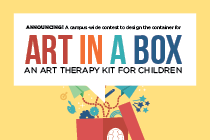

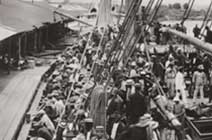
 The thematic focus of the project, African American labor, migration and artistic expression, incorporates the broad intellectual interests shared by a large group of prominent scholars, students and staff on campus, and represents some of the campus’s greatest strengths. Specific research projects will be undertaken in collaboration with
The thematic focus of the project, African American labor, migration and artistic expression, incorporates the broad intellectual interests shared by a large group of prominent scholars, students and staff on campus, and represents some of the campus’s greatest strengths. Specific research projects will be undertaken in collaboration with  “Students and faculty researchers might investigate questions about labor activism among Caribbean Americans or explore visual representations of work as they examine the relationship of Black artists and the labor movement,” Ms. Thornton Dill said.
“Students and faculty researchers might investigate questions about labor activism among Caribbean Americans or explore visual representations of work as they examine the relationship of Black artists and the labor movement,” Ms. Thornton Dill said.